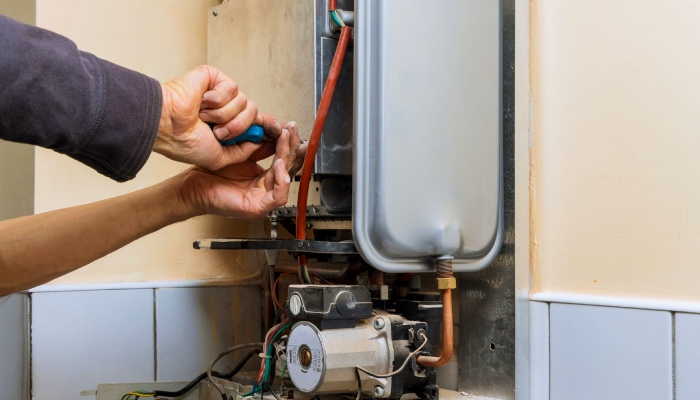
Hot water systems are essential for providing consistent, controlled access to hot water in homes, offices, and various industrial settings. These systems range from simple residential setups to complex networks in large buildings, all designed to deliver heated water efficiently and safely. Common types of hot water systems include tank-based, tankless, electric hot water systems, and solar hot water systems, each serving the specific needs of different environments. Regular hot water system maintenance is crucial to ensure that these systems, particularly the more sophisticated electric and solar varieties, continue to operate effectively and safely, preventing issues such as excessive pressure buildup across their intended applications.
An integral component of these systems is the hot water system valve. These valves are crucial for managing the flow and pressure of water within the system. They ensure that the system operates within safe limits and responds correctly to the demands placed on it. Valves control every aspect of the operation, from the flow of incoming cold water, to the maintenance of adequate pressure throughout the system, to the release of hot water when demanded. The proper functioning of these valves is essential for the efficiency and safety of the entire system. Regular maintenance of these valves not only prevents mechanical failures and potential safety hazards but also enhances the hot water system maintenance’s overall longevity and reliability. Thus, understanding the role and maintenance of hot water system valves is fundamental to the optimal functioning of any hot water setup.
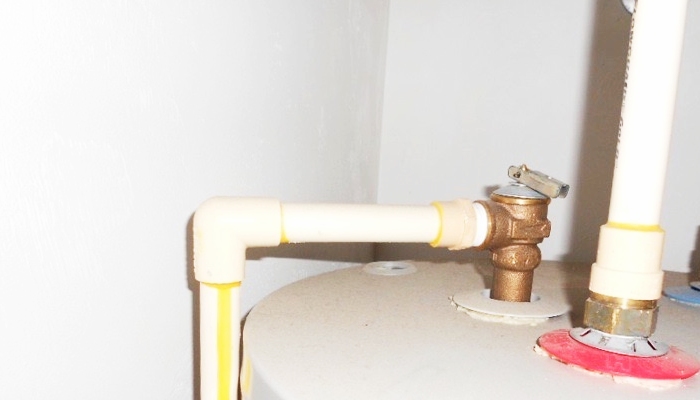
Understanding Hot Water System Valves
Hot water system valves are pivotal components designed to control, regulate, and ensure the safe operation of hot water systems across various settings. Their primary function is to manage the flow and pressure within the system, thus playing a critical role in both efficiency and safety. There are several types of valves that are commonly used in hot water systems, each serving distinct purposes:
Pressure Relief Valves
These are crucial for safety, designed to prevent the system from reaching dangerous pressure levels which could lead to system failure or catastrophic damage. The valve operates automatically by opening to release water if the pressure of heat pump exceeds a preset threshold, thereby averting potential hazards.
Check Valves
Essential for preventing the reverse flow of water, check valves ensure that hot water moves in only one direction, thus maintaining the system’s integrity and preventing issues like backflow contamination. This is particularly important in systems where mixing of potable and non-potable water must be avoided.
Shut-off Valves
These valves are used to isolate different sections of the hot water system. They are critical during maintenance operations or emergencies, allowing specific areas of hot water tank to be shut down without affecting the function of the entire system.
Thermostatic Mixing Valves
These valves are used to control the temperature of the hot water discharged from the system by mixing hot water heater manual, and cold water to a preset temperature. This is vital for preventing scalding and for energy efficiency.
Ball Valves and Gate Valves
Often used for main water shutoffs or segment isolation, these valves provide robust control over the flow of water. Ball valves offer quick shut off with a simple quarter-turn operation, while gate valves are known for their ability to withstand high pressure and temperatures.
Each valve type has specific maintenance needs and failure modes. For example, pressure relief valve and valves may require periodic testing to ensure they open at the correct pressure settings. Check valves might accumulate mineral deposits that can impede their function, requiring regular cleaning or replacement. Similarly, thermostatic mixing valves need routine checks to ensure they mix water at the designated temperatures consistently.
Understanding these valves, their roles in hot water tanks, and their maintenance not only helps in extending the lifespan of the hot water system but also enhances its safety and performance. Regular inspections and timely repairs of these valves are fundamental to maintaining a reliable and efficient hot water system. This section’s in-depth exploration of valve types and their specific functions within the hot water system illuminates their indispensable role and underscores the need for meticulous maintenance and operation.
Significance of Valve Maintenance
Maintaining the valves in a hot water system is not merely a routine checklist item; it is a crucial practice that impacts the overall performance and safety of the system. Proper maintenance ensures that valves operate efficiently, preventing issues such as leaks, temperature inconsistencies, and pressure imbalances. It also significantly reduces the risk of catastrophic failures, which can lead to costly repairs and even pose dangers to building occupants.
Regular valve maintenance provides several key benefits:
- System Reliability: Well-maintained valves help ensure that the hot water system functions as expected, without unexpected shutdowns or malfunctions.
- Energy Efficiency: Valves in good condition help maintain the system’s energy efficiency by regulating the flow and temperature of water effectively, preventing energy wastage.
- Longevity of the System: Regular maintenance reduces wear and tear, prolonging the life of both the valves and the entire hot water system.
- Compliance and Safety: Keeping valves in optimal condition helps comply with safety regulations and standards, preventing accidents related to overpressure or scalding.
The importance of valve maintenance in hot water service cannot be overstated. It involves regular inspections, timely repairs, and replacement of parts when necessary. Such practices not only ensure the operational integrity of the hot water system but also safeguard it against potential legal and safety ramifications.
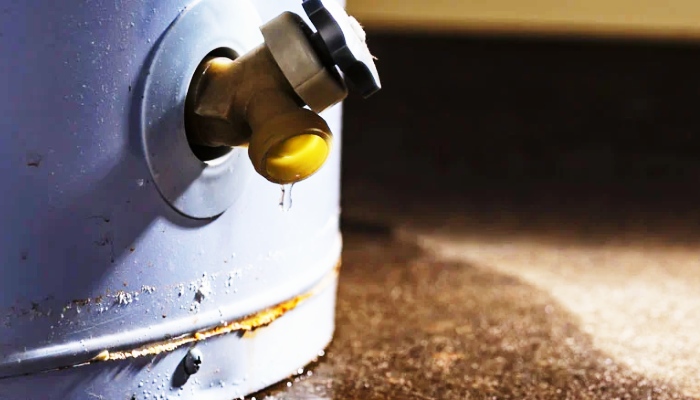
Common Issues with Neglected Valves
Neglecting valve maintenance in hot water systems can lead to a variety of problems, affecting both the efficiency and the safety of the system. Some of the most common issues include:
- Leakage: Worn out or damaged valves can cause leaks, leading to water loss and increased utility bills. Persistent leaking also results in water damage to the building infrastructure, which can be expensive to repair.
- Corrosion: Valves are susceptible to corrosion over time, particularly in systems with hard water. Corroded valves may fail to operate properly, which can impede the flow of water and lead to blockages or leaks.
- Scale Build-up: In areas with hard water, scale can accumulate on valve components. This build-up can restrict water flow, reduce valve effectiveness, and eventually necessitate premature valve replacement.
- Operational Failures: Valves that are not regularly maintained may fail to open or close fully, leading to issues like poor water temperature control or inadequate pressure regulation within the system.
Addressing these issues as soon as they are detected is essential. Waiting too long can exacerbate the problems, leading to more significant system disruptions and higher repair costs. Regular maintenance schedules and proactive inspections are key strategies to mitigate these risks and maintain the optimal performance of hot water systems.
Benefits of Regular Valve Maintenance
Regular maintenance of valves in hot water systems provides a multitude of benefits that extend beyond the immediate operational efficiency of water heaters in the system. These benefits touch on various aspects of system management, cost control, and regulatory compliance:
Enhanced System Efficiency
Regularly maintained valves operate more efficiently, ensuring optimal flow and pressure control. This efficiency reduces strain on the heating system, which can lower energy consumption and result in significant cost savings over time.
Prevention of Costly Repairs and Downtime
By addressing minor issues before they escalate into major problems, regular valve maintenance prevents costly repairs and the downtime associated with major system failures. This is particularly critical in commercial settings where hot water availability is crucial to business operations.
Extended Equipment Lifespan
Maintenance extends the life of valves and related system components by ensuring they operate under optimal conditions, thus avoiding the stresses that lead to premature wear and failure.
Safety and Compliance
Regular maintenance helps ensure that safety devices within the system, such as pressure relief valves, function properly. This is crucial for compliance with health and safety regulations, which can vary by region but generally mandate the maintenance of commercial building systems to protect occupants and property.
Water Conservation
Well-maintained valves prevent leaks and unnecessary water loss, contributing to water conservation efforts and reducing the environmental impact of the system.
Improved Water Quality
Regular valve maintenance can also impact water quality by ensuring that components like check valves and backflow preventers operate effectively, thus preventing contamination.
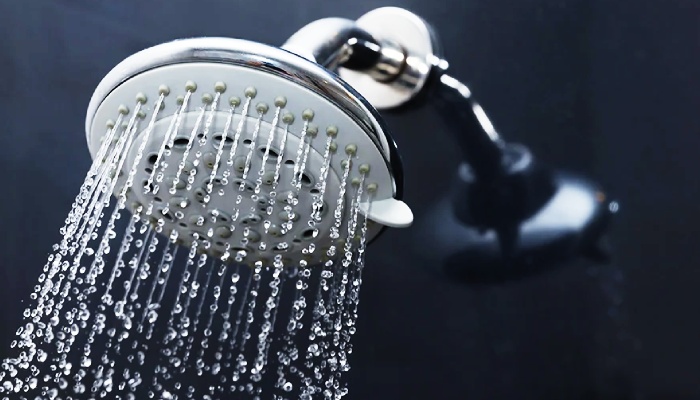
Maintenance Procedures for Valves
To maintain the hot water system valves effectively, it is important to follow a structured procedure that encompasses inspection, cleaning, testing, and replacement as necessary. Here’s a detailed guide on how to conduct maintenance on various types of hot water unit valves:
Inspection
Begin with a thorough inspection of all valves within the system. Look for signs of wear, corrosion, leakage, or damage. Check for any abnormal noises during operation which might indicate internal problems.
Cleaning
Remove any dirt, debris, or sediment buildup on valve bodies and internals. In cases of scale or mineral buildup, especially in areas with hard water, use appropriate cleaning agents or techniques to remove deposits without damaging the valve components.
Testing
Perform functional tests to ensure each valve operates smoothly and correctly. For pressure relief valves, test the triggering of pressure relief valve to ensure it aligns with system specifications. For thermostatic mixing valves, check the accuracy of temperature settings.
Lubrication
Apply suitable lubricants to moving parts where necessary, according to manufacturer recommendations. This is particularly important for ball valves and gate valves, which depend on smooth operation of their mechanisms.
Replacement of Worn Parts
Replace any parts that show excessive wear or damage, such as seals, gaskets, or springs. It’s crucial to use compatible parts to maintain the integrity and safety of the valve.
Documentation
Keep detailed records of all maintenance activities, including what was done, who performed the work, and when. This documentation is invaluable for tracking the maintenance history and planning future interventions.
Professional Assessment
For complex systems or when significant issues are detected, it may be necessary to engage a professional. Specialists can perform advanced diagnostics, make precise adjustments, and handle major repairs or replacements that go beyond routine maintenance.
Following these detailed maintenance procedures ensures that the valves in your hot water system remain in peak condition, safeguarding the system’s efficiency, safety, and reliability. Regular maintenance not only keeps the system running smoothly but also aligns with best practices for system management and regulatory compliance.
Tools and Equipment Needed for Valve Maintenance
Proper maintenance of hot water system valves requires specific tools and equipment that enable precise work and ensure the safety of the maintenance personnel. Having the right tools not only makes the maintenance process more efficient but also helps in avoiding damage to the valves and other system components. Here is a list of essential tools and equipment needed for valve maintenance:
- Wrenches and Pliers: A set of adjustable wrenches and pliers is vital for loosening and tightening various components of the valves. These tools should be of high quality to handle the torque without slipping or damaging the fittings.
- Screwdrivers: Various sizes of flathead and Phillips screwdrivers are needed for dismantling valves that are secured with screws.
- Valve Grinding Tool: For valves that need resurfacing to ensure a tight seal, a valve grinding tool is used. This tool helps in removing any surface imperfections or buildup that can cause leaks.
- Pipe Cutters: When valves need to be replaced, pipe cutters are used to cleanly cut through the piping without causing damage that can lead to leaks.
- Pressure Gauges: To test the pressure settings of pressure relief valves, accurate pressure gauges are necessary. These help ensure that the valves open at the correct pressure settings, which is crucial for safety.
- Torque Wrench: For valves that require specific torque settings, a torque wrench ensures that all nuts and bolts are tightened to the manufacturer’s specifications.
- Flashlight and Inspection Mirror: These tools help in inspecting hard-to-see areas around valves and in the interior of tanks or pipes where lighting is poor.
- Lubricants and Sealants: Proper lubricants and sealants are required to ensure smooth operation of the valves and to prevent leaks. These should be suitable for use with potable water when dealing with drinking water systems.
- Safety Gear: Safety goggles, gloves, and appropriate footwear should be worn during maintenance to protect against potential hazards like hot surfaces, chemicals, or pressurized water.
Having these tools and equipment on hand when performing maintenance on hot water system valves ensures that the work can be done effectively and safely, maintaining the integrity and reliability of the hot water heater and heating system.

Professional vs. DIY Maintenance
When it comes to maintaining the valves in a hot water system, property owners often face the decision between doing the work themselves or hiring a professional. Each option has its advantages, but for ensuring the system’s reliability and safety, professional maintenance often stands out as the best choice.
DIY Maintenance:
- Pros:
- Cost Savings: Performing maintenance yourself can save on labor costs associated with hiring a professional.
- Flexibility: You can perform maintenance on your own schedule and as frequently as you consider necessary.
- Learning Experience: Doing the maintenance yourself can provide valuable knowledge about how your system operates, which can be useful for troubleshooting minor issues in the future.
- Cons:
- Risk of Mistakes: Without specialized knowledge, there is a higher risk of incorrectly performing maintenance, which can lead to system damage or safety issues.
- Time Consuming: DIY maintenance can be time-consuming, especially if you are not familiar with the system.
Professional Maintenance:
- Pros:
- Expertise: Professionals have the training and experience to diagnose and fix issues efficiently and effectively. They are familiar with a variety of models and configurations, which enables them to identify and resolve complex issues quickly.
- Comprehensive Service: A professional can perform more thorough maintenance, including tasks that may be too complex or dangerous for a DIY approach. This includes critical tasks like adjusting pressure relief valves, checking for corrosion or sediment build-up, and ensuring that all safety standards are met.
- Warranty and Guarantees: Work performed by professionals is often covered by a service guarantee or may be necessary to maintain a warranty on the system.
- Cons:
- Cost: Professional services can be more expensive than DIY, particularly if they are required frequently.
- Scheduling: You may need to schedule maintenance according to the availability of the professional, which could delay necessary repairs.
While DIY maintenance can be appealing for minor adjustments and regular check-ups, the complexity and safety requirements of maintaining hot water system valves make professional services the recommended choice. Professionals not only bring expertise and precision to the task but also ensure that the system operates safely and efficiently. This is particularly crucial for commercial settings where hot water system failures can lead to significant disruptions and legal liabilities. Ultimately, the investment in professional maintenance pays off by extending the lifespan of the system, preventing costly emergencies, and ensuring compliance with safety regulations.
Case Studies of Effective Valve Maintenance
To illustrate the importance and benefits of regular valve maintenance in hot water systems, several case studies provide real-world insights into how proactive maintenance can prevent problems and extend gas hot water system’ longevity:
Case Study 1: Residential Complex
- Background: A large residential complex experienced frequent hot water outages and high energy bills.
- Issue: Maintenance checks revealed that several critical valves were severely corroded and not functioning properly, which caused poor water flow and thermal inefficiency.
- Solution: All damaged valves were replaced, and a regular maintenance schedule was established, focusing on quarterly inspections and immediate replacement of parts showing wear or damage.
- Outcome: The maintenance overhaul led to improved system efficiency and reliability. Residents reported consistent hot water availability, and energy consumption decreased by 15%, reflecting cost savings on utility bills.
Case Study 2: Commercial Hotel
- Background: A mid-sized hotel faced guest complaints about inconsistent water temperatures and pressures.
- Issue: An inspection found that the thermostatic mixing valves had not been calibrated and were sticking due to sediment build-up.
- Solution: Professional cleaning and recalibration of all mixing valves were performed, and staff received training on signs of valve failure to address issues promptly.
- Outcome: The hotel saw a drastic reduction in guest complaints and an enhancement in overall guest satisfaction, reinforcing the brand’s reputation for quality service.
Case Study 3: Industrial Facility
- Background: An industrial facility with critical heating requirements noticed a drop in heating efficiency and an increase in operational costs.
- Issue: The facility’s maintenance team discovered that several high-pressure steam valves were leaking, leading to significant heat loss.
- Solution: Leaking valves were replaced, and a steam trap management program was initiated to monitor system performance and ensure optimal operation.
- Outcome: Post-maintenance, the facility reported a 20% improvement in heating efficiency and reduced steam loss, translating into lower operational costs and increased production uptime.
These case studies demonstrate that regular and effective maintenance of hot water system valves is crucial for ensuring optimal performance, efficiency, and customer satisfaction. They also highlight the cost-saving potential and the importance of skilled maintenance practices in different settings.
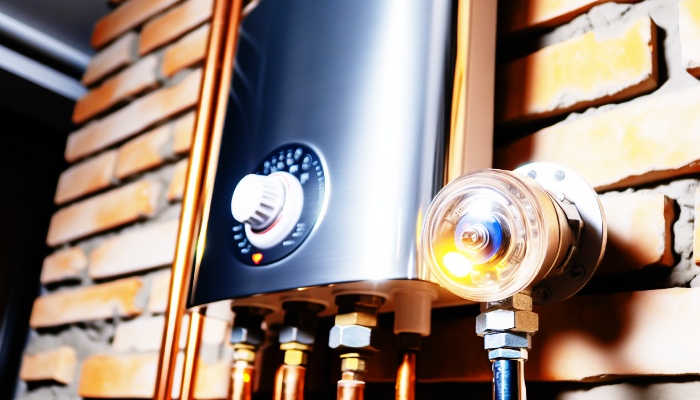
Conclusion: Prioritizing Valve Maintenance
The maintenance of valves in hot water systems is not merely a technical requirement but a strategic investment in the longevity and efficiency of heating systems, including gas hot water systems, electric hot water systems, and solar hot water systems. As demonstrated through various case studies and technical insights, effective valve maintenance can prevent numerous potential issues, from system inefficiencies and failures to safety hazards and compliance problems.
Prioritizing regular maintenance of hot water system valves ensures that these systems, regardless of their type, operate reliably and continue to meet the demands of users without interruption. This practice is vital for hot water services, as it significantly reduces the risk of expensive repairs and replacements, thereby offering substantial cost savings over the system’s lifespan. Furthermore, consistent maintenance practices help maintain compliance with safety regulations, protecting property and lives.
Property owners, facility managers, and maintenance personnel should view valve maintenance not as an optional task but as an essential part of their operational responsibilities. Investing in regular maintenance, whether through skilled in-house staff or professional services, will pay dividends in system performance and durability. Thus, understanding the importance of regular maintenance for hot water system valves is not just about keeping a system running; it’s about optimizing performance and securing peace of mind for everyone relying on the hot water it provides.
